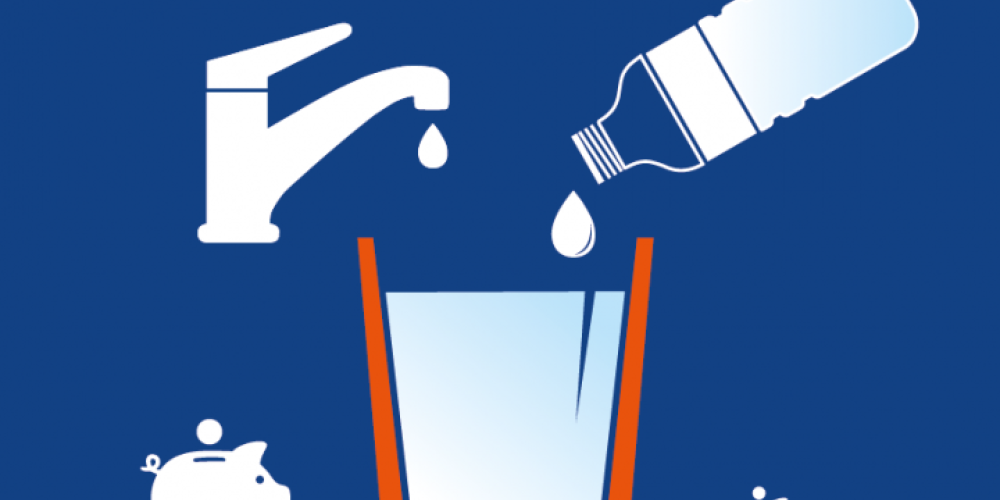
March 22nd is World Water Day. The VUB likes to focus on sustainable water consumption as well. Researcher Dimitri Crespin is a hydrologist at the department of Hydrology and Hydraulic Engineering (HYDR) and is a member of the HYDR Green Impact Team. Together with the department of Prevention and Environment, his team launches a water campaign with a warm call to drink more tap water.
The coming month, the VUB will focus on the many benefits of tap water. The HYDR Green Impact Team and the department of Prevention and Environment will work together to transform the VUB into a Blue Community. Still not convinced? Researcher Dimitri Crespin will tell you why we should all have more appreciation for our tap water.
The price, the quality, the environment… There are plenty of reasons to swap your bottled water for tap water. “There are many misconceptions about the quality of tap water”, says Dimitri Crespin. “People think it’s of poor quality, has a bad taste, or is not as pure as bottled water. Sometimes people think the water pipes are not clean, while we actually know tap water is checked more often than bottled water. There is no risk of infection when you drink tap water. The water in Brussels mostly comes from the river Meuse in Wallonia, but also from groundwater tables. This water does not need to be purified, it is pumped immediately to our taps. That is true purity.”
Do you not like the calcium in Brussels tap water? Learn to appreciate it, because there’s lots of good things in it, more than you would think. “Calcium is very healthy. It contains many minerals which are not always present in other kinds of water or food. If you are having trouble with calcium in your kitchen appliances, vinegar is a cheap cleaning alternative which works perfectly.” A water softener will also diminish the useful minerals in the water. “It takes away the calcium”, Dimitri Crespin clarifies. “Tap water really contains a lot of good things. People also forget that all the water we use, is safe to drink, even though it doesn’t have to be. Washing, showering, cleaning, doing the dishes… The water coming from our tap is a luxury product and there is no risk whatsoever. Only a small amount of chlorine is added to prevent bacteria from growing.
If you don’t like the smell or the taste, you can turn on the tap for a couple of seconds and they will disappear. It is a gas, so it vanishes. There is no harm at all.” Not only is the quality of bottled water lower than that of tap water, its ecological footprint is six times larger, since we bottle the water, ship it, bring it to the store, sell it… The impact on the environment is enormous. “Even though some drink sellers claim to emit less during production, it is still the most responsible option to produce and consume tap water.” For example, bottled water is promoted as the best option for pregnant women and babies. “Some spring water contains more magnesium, but you can also find it in bananas, for example.”
In Belgian cafés and restaurants, tap water is not an obvious choice yet. “In France, for example, all restaurants and cafés are legally bound to serve tap water. As for now, that is not the case in Belgium, but the legislation is being re-examined. Nowadays, it’s already easier to ask for tap water, especially in new bars.” The VUB is on the right water track, serving tap water in the restaurant and offering brand-new drinking fountains. “The idea of a Blue Community comes from Canada. We want to turn the VUB into one by, for example, not offering bottled water anymore during meetings and receptions, and promoting tap water. We must help people change their water behaviour. The cooperation between different departments is a great way to start. We can take stock of SipWell watercoolers and reduce the number of drink vending machines.”